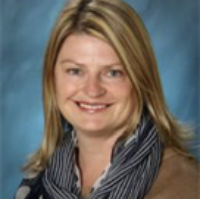Speech Language Pathologist
Sara Llamas
Jill Dennis
Speech Language Pathologist
Bachelors in Special Education and two Masters in Special Education and Communicative Disorders
Question & Answer
How is the ability to communicate and work with people from different cultural backgrounds useful or important in this field?
Jill Dennis listed a few of the most needed skills for a SLP as follows:
- Understanding statistics and data to see trends in her research.
- Being able to learn new therapies and platforms of technology still.
- Keeping up with ASHA- American Speech-Language-Hearing Association and their research.
- Having to keep data, using computer programs to track that data.
- Communication skills with different groups and networking with other professionals.
- Need to be flexible in scheduling and reinventing schedules if the dates are changed.
- Finally, compassion for students and understanding their background.
What are some other skills that are important for success in this field?
In her career as a SLP, knowing how to work with people of different cultural backgrounds is vital. She works with multilingual students. She has the students and their families and can respect their culture. She and the school district will try to find interpreters for these students when needed.
She mentioned testing the student for their language skills. Testing the language skills of her multilingual students has to be done in their language just to show if they have a disability in their language. Or if they are having problems speaking in a language that is not their maternal language.
What did you do to prepare for this field?
Undergrad major not specified. Need grad school in the major of communication disorders. She went to ISU for grad school. Need to meet course requirements to finish grad school.
What skills are needed for this job?
Being organized by being able to schedule meetings with the students, parents, and other staff at school and making a school schedule for the students, parents, and other staff. Another skill was having to be a good writer by having to write reports on the students. Social skills and communicating with many different people through various platforms. Creativity is a skill needed to find new therapies for the students and keep them entertained.
How much and what kinds of experience did you need to compete for entry-level positions?
During Jill Dennis’s grad school, she had to complete many observation hours in schools, private practice, nursing homes, and hospitals. She had to get that experience to finish her master’s. Aspiring SLPs need a bachelor’s degree and a master’s in communicative disorders.
She believes that finding a job as a SLP is uncompetitive because there is a lack of SLPs in the states. Jill Dennis didn’t have difficulty finding a position as a SLP at a school district since she was already working at a school as a Special education teacher. Jill was able to change her position at the school as the school’s speech pathologist.
Do you have any tips for me specific to resumes, portfolios, profiles, cover letters, applications, interviewing, or other job search aspects?
She recommended an observation experience. An observation experience would help when I interview or write an essay for grad school to show my dedication to the job. She also recommends that I look into resources such as ASHA and see their treatments and therapies to understand the field or look into free resources offered to SLPs to know more about the field.
What do you find most enjoyable or rewarding about your job, and what is the most challenging or least enjoyable about your job?
Jill Dennis said students’ progress is her favorite part of the job, stating, “that’s my favorite part and pulling the students out of class and seeing they’re excited to improve their speech.”
She also mentioned that her relationships with staff made her job enjoyable.
Her least favorite part and most challenging part of the job is paperwork. She states that paperwork is the data of her students’ progress. She sometimes struggles to focus when taking the data because she can be too invested in the students. Because of her investment in the students, she might not mark and document the student’s progress. She said the process of filling out paperwork and the familiarity of her schedule documenting and reporting the students’ stats has become routine.
What does your day-to-day look like?
Each day varies. “My Mondays and Wednesdays are similar. Tuesdays and Fridays are similar. Thursdays are for meetings.” She said Mondays and Wednesdays were to help one group or groups with their speech, and Tuesdays and Fridays were to help other student groups with their speech. Meetings on Thursdays can be with staff, parents, students, school board, etc. Meetings help regulate her schedule and keep in communication with those around her. She also keeps her schedule open to help out with the Sunshine Club after school, and its purpose is to give students incentives to go to school more regularly. Her schedule varies in what groups she works with to help with their speech.
Reflection
The interview went well with Jill Dennis. She spoke about her day-to-day work, how she came to the position she is in now, and also advice for me if I were to pursue this career. Jill Dennis is a Speech-language pathologist and works for the Boise School District. She enjoys her job because she enjoys working with children and helping them with their speech. This career as a school SLP is to improve students’ articulation processes. In this job, she has to work with the parents and other faculty members.



